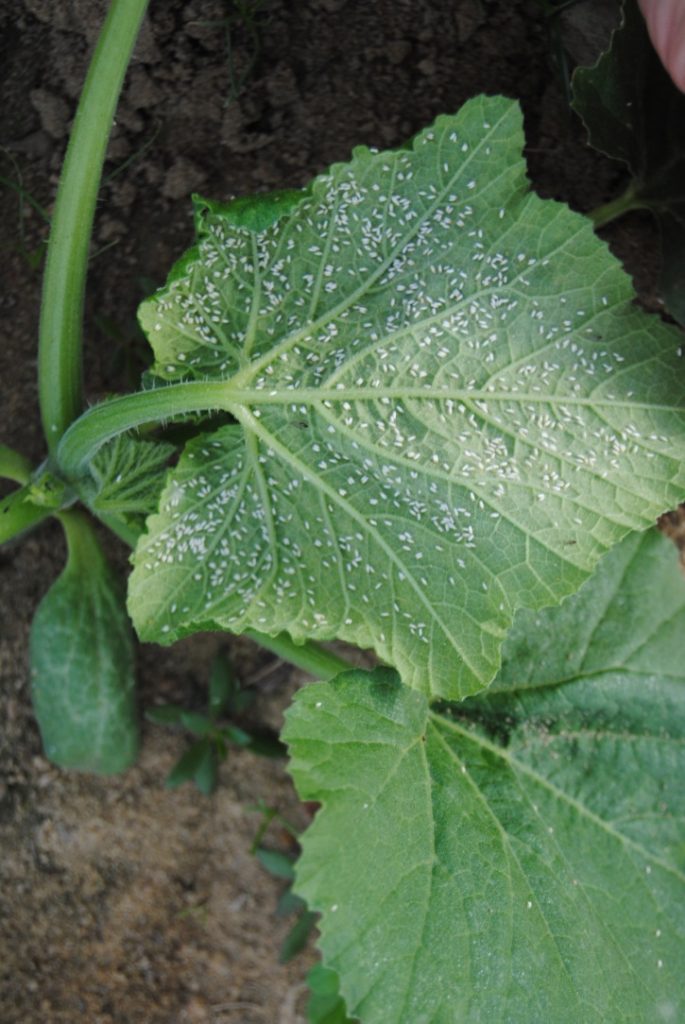
Insecticides are available for growers managing whitefly populations. But they need to be applied early in the season when whiteflies are young and immature.
“Most of the things we use primarily target immatures. That’s where our best control is. We’ve only got a couple of products that are really good on adults,” said Stormy Sparks, University of Georgia Cooperative Extension vegetable entomologist. “Most of them, I can’t say for certain, but most of them probably are most efficacious on very little N-star immatures.”
Managing whiteflies when they’re young is a producer’s best management strategy considering how quickly they will reproduce.
Whiteflies can grow by a generation in just two weeks in the heat of the summer when temperatures routinely exceed 90 degrees Fahrenheit. The time for these insects to develop is related to temperature. When temperatures are cooler, development takes longer.
During hot and muggy conditions, which are common in Georgia and Alabama in July and August, development time for whiteflies decreases.
“Whiteflies are one of those things you don’t want to get behind on,” Sparks said.
Southeast producers grow cole crops, like broccoli, kale and cabbage, from September through May. Cucurbits grow in the summer, and cotton grows in the early fall. All of these crops serve as host plants for whiteflies.
Whiteflies can also transmit cucurbit leaf crumple virus and cucurbit yellow stunting disorder virus.









